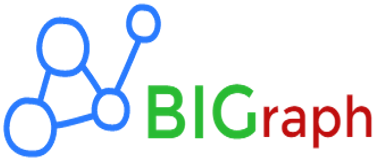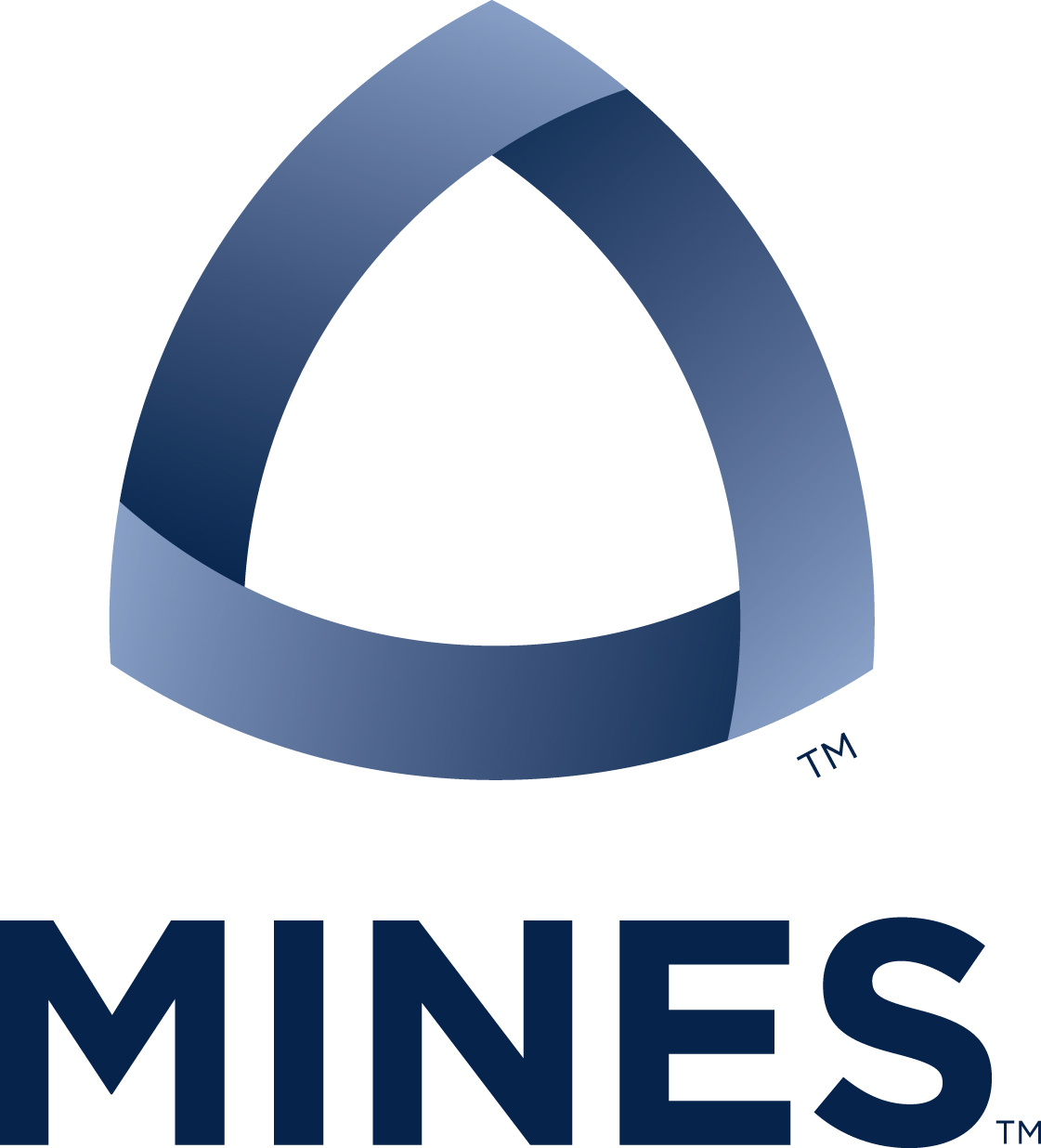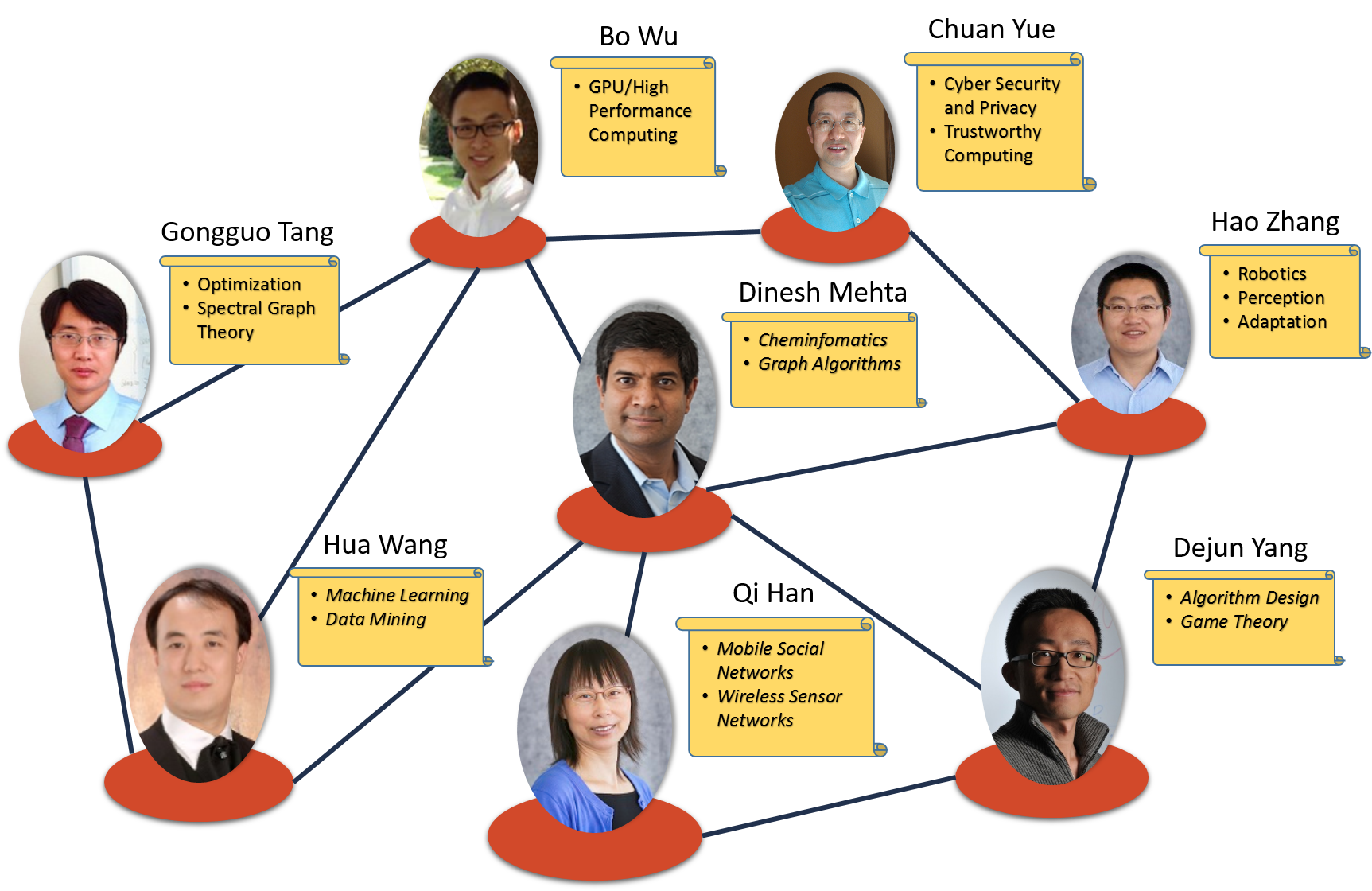



Dinesh's research on combinatorial algorithms for graphs dates back over two decades and includes applications in analytics, VLSI design automation, mobile computing, computational materials, the smart grid and cheminformatics. His recent research in cheminformatics has included the conceptualization and efficient realization of large isomer networks, while his ongoing research on large graphs includes the development of approximate solutions and implementations on cloud-based platforms.
Qi's research focuses on wireless sensor systems, robotic networks, pervasive computing, and mobile social networks. Her recent research has included the detection and monitoring of dynamic social groups and adaptive robot formation in self-organizing networks of mobile robots. All of these applications are built on an underlying graph/network structure and her research exploits the properties of this underlying structure for the efficient distributed management of these systems.
Gongguo's work focuses on using optimization techniques to model and solve problems in signal processing, physical science, and machine learning. He is especially interested in designing scalable optimization procedures that come with theoretical performance guarantees. A common theme of his work is exploiting structures in the problem in a computationally efficient way; these structures could be sparsity, manifold, smoothness, dynamics, graphs, and so on. A few current projects include tensor decomposition and completion in machine learning, super-resolution and phase retrieval in imaging, spectral estimation in sensor array and radar problems, and causality inference in graphical modeling.
Hua's research focuses on machine learning and data mining, as well as their applications in computer vision, bioinformatics, health informatics and chemical informatics. Because objects in real-world problems are typically interconnected with each other and rarely exist alone by themselves, graphs provide a natural yet effective way to model these problems. Thus developing graph based algorithms can meet the pressing needs for deep understanding of data insights. His recent research covers a broad range of models using graphs, such as those for classification, clustering and missing data imputation.
Bo's research focuses on optimization techniques, such as compiler and run-time optimization, for data-intensive applications. His recent research has included memory reorganization, automatic parallelization, asynchronous execution, and approximate computing, which aim at significantly accelerating big graph analytics running on heterogeneous systems with both CPUs and GPUs.
DJ has been striving to obtain a comprehensive understanding of the resource allocation problems in networks, including routing, node placement, and channel allocation. Modeling the networks as large scale graphs, he designs simple and efficient yet provably good algorithms using tools from several diverse areas, such as algorithm design, combinatorics, and convex optimization. For problems involving individual decision-makers, he models, analyzes, and solves them using game theory, a resourceful mathematical framework originally from economics.
Chuan focuses on investigating the cyber security & privacy problems related to the web, mobile, cloud, and cyber-physical systems as well as their users. He takes four main approaches in his research: (1) design novel systems and use techniques such as machine learning & program analysis to perform large-scale measurement & analysis of security & privacy vulnerabilities, (2) design and perform novel user & usability studies towards achieving usable security & privacy, (3) design and evaluate novel systems & software features to effectively strengthen the security & privacy protection capability, and (4) design and conduct novel security & privacy educational research.
Hao's research areas include 3D perception, robot learning, decision making, and human-robot teaming in human-centered robotics applications such as search and rescue and assistive robotics. His recent work focuses on large-scale environment mapping, human behavior understanding, and sequential decision making to enable implicit human-robot teaming. Many developed algorithms rely on a fundamental understanding of probabilistic graphical models and topological graphs with dynamic structures.
